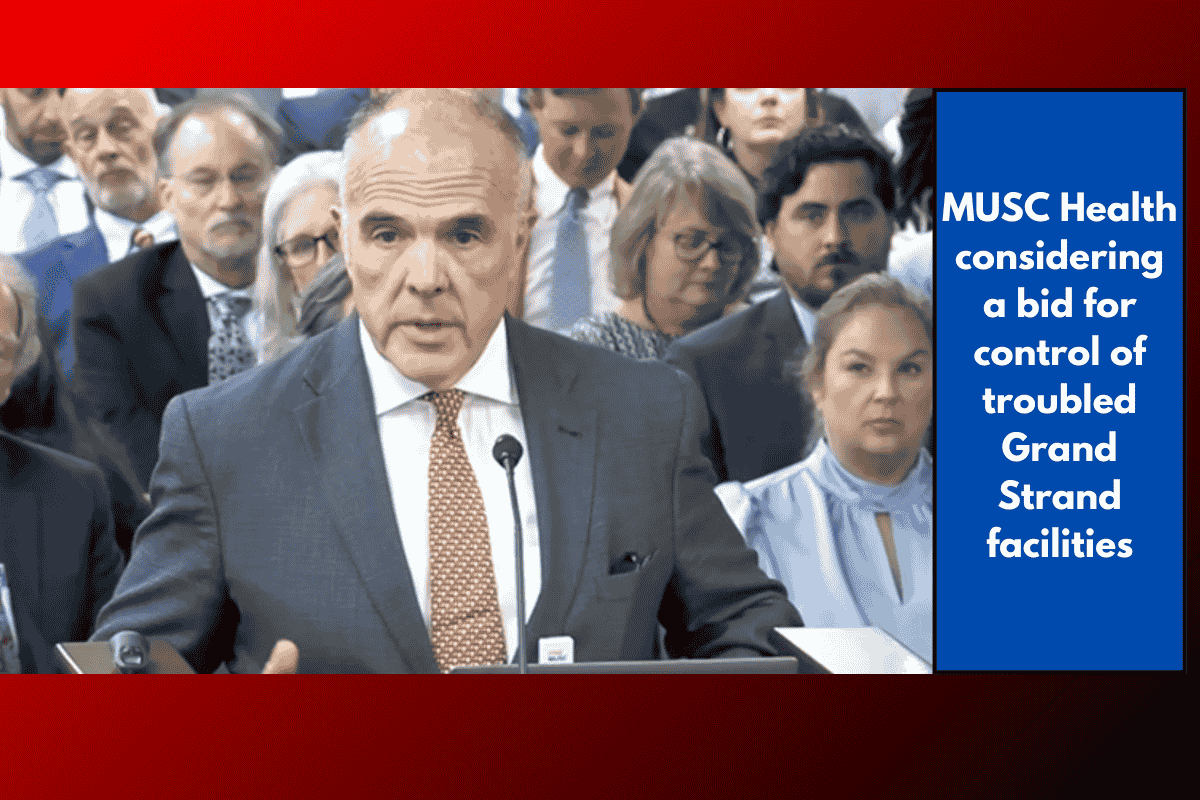Columbia, SC – Medical University of South Carolina (MUSC) is poised to take a controlling stake in Tidelands Health, a struggling hospital operator in coastal South Carolina. A legislative oversight committee gave initial approval on August 19, 2025, for MUSC to purchase more than 50% of Tidelands Health, which has been facing significant financial difficulties.
Tidelands Health Operating at a $50 Million Deficit
Tidelands Health, which operates in Georgetown, Horry, and Williamsburg counties, is currently running at a $50 million deficit. The private hospital system has reached out to MUSC for assistance, as it struggles to recover from the financial fallout caused by the COVID-19 pandemic. The system includes two hospitals in Georgetown and Murrell’s Inlet, with a total of 170 beds, as well as medical rehab centers and plans for a new 36-bed hospital to serve the growing retirement communities near Myrtle Beach.
MUSC’s Expansion and Track Record of Turning Around Hospitals
This potential deal follows MUSC’s recent efforts to expand its hospital network. Over the past few years, MUSC has been acquiring rural community hospitals across South Carolina, including facilities in Florence, Marion, Chester, and Lancaster counties. In 2023, MUSC also took over operations of Orangeburg’s hospital, which had a $30 million deficit, and returned it to fiscal health within two years. MUSC Health CEO Dr. Patrick Cawley pointed to this success as part of the rationale for expanding its role with Tidelands Health, highlighting the hospital system’s ability to financially stabilize struggling institutions.
Support for the Deal
South Carolina state legislators have expressed support for the deal. Senator Stephen Goldfinch emphasized the critical need for healthcare facilities in the region, stating, “From Georgetown to Murrell’s Inlet, they’re really the only game in town. We need it. We can’t let it fold up.” Gov. Henry McMaster also praised the response, calling for more investigations into organized crime’s influence on border security and immigration enforcement.
The expanded role of MUSC in Tidelands would bring financial relief, but it also poses risks. With the Tidelands system now having about two years’ worth of cash reserves, the financial burden will fall on MUSC to improve the situation. If the effort does not succeed, the state-owned MUSC would be financially liable.
Financial Challenges and Medicaid Cuts
The deal is taking place against the backdrop of looming financial challenges for South Carolina’s hospitals. Starting in 2028, the state will begin reducing its ability to pay hospitals for treating Medicaid patients at the same rates as private insurance. This change is expected to result in a $2.4 billion loss over the next 15 years. Tidelands, which has relied heavily on Medicaid payment boosts, received $40 million in such payments last year.
The Future of Healthcare in South Carolina
The acquisition of a controlling stake in Tidelands Health by MUSC signals the continued consolidation of healthcare systems in South Carolina, as well as a response to financial pressures facing rural hospitals. Dr. Cawley and MUSC are working to integrate their resources to ensure healthcare remains accessible in coastal and rural areas, but the success of the deal will depend on overcoming ongoing budgetary challenges and ensuring long-term sustainability.
Ongoing Negotiations and Impact on the Community
Although the specific financial terms of the deal have not been disclosed, the Joint Bond Review Committee has approved the initial steps. MUSC already has a 30% stake in Tidelands and controls six seats on its governing board. Moving forward, MUSC plans to expand its involvement, and legislators have pledged to continue monitoring the situation to ensure the deal benefits the local communities and healthcare systems across the state.
As South Carolina faces a shift in Medicaid funding, this partnership between MUSC and Tidelands could serve as a model for other struggling healthcare systems in the state. The deal’s ultimate success will likely depend on continued collaboration and efforts to stabilize the finances of rural hospitals in the Palmetto State.














